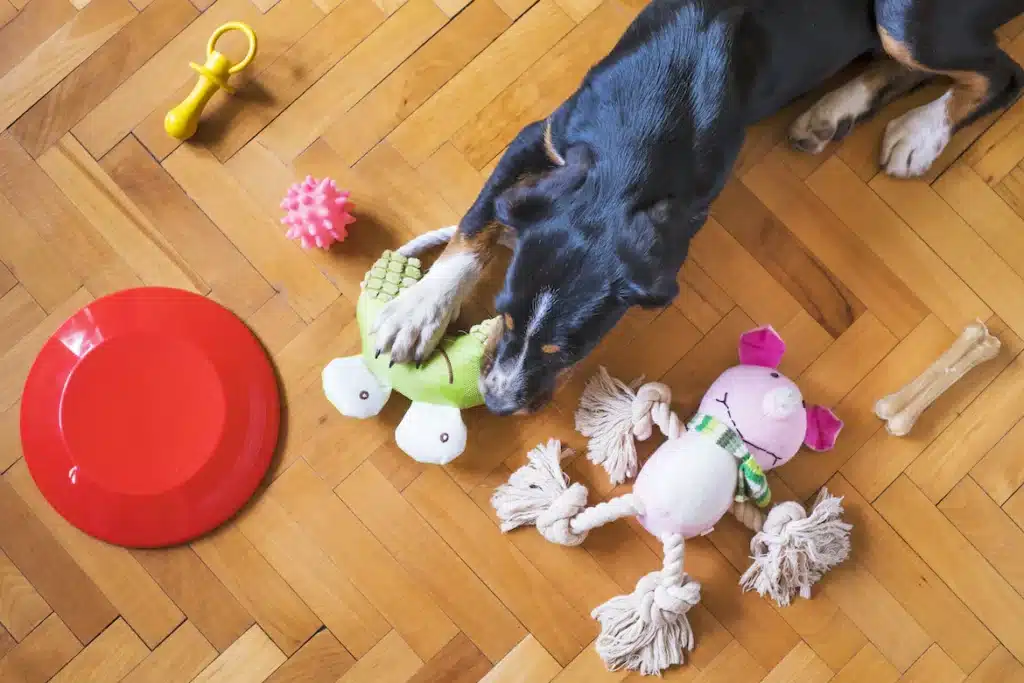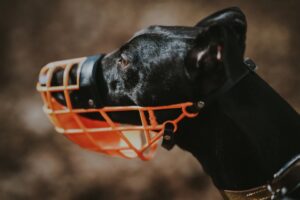Dogs are intelligent and capable of learning many complex behaviors, but can they make decisions? This is a question that has been debated by animal behaviorists and dog owners alike. In this blog post, we will explore the scientific evidence regarding dogs’ decision-making abilities, and the importance of allowing them to make choices.
Can Dogs Make Decisions?
A study published in the journal Animal Cognition found that dogs are able to learn from past experiences and use that knowledge to make decisions in new situations.
Furthermore, research has shown that dogs can make social decisions. A study published in the journal Animal Behaviour found that dogs are able to use their knowledge of human behavior to make decisions. In the study, dogs were presented with a situation where a human experimenter offered them two bowls of food, but one was empty. The dogs were more likely to choose the bowl with food if the experimenter was facing them, rather than looking away.
Additional studies have also shown that dogs can make decisions in various contexts, including problem-solving tasks and social situations. These studies highlight the importance of considering dogs as intelligent beings with the ability to make choices and decisions.
The Importance of Allowing Dogs to Make Their Own Decisions
Allowing dogs to make their own decisions is important for their overall well-being. When dogs are given the opportunity to make choices, they are more likely to be engaged and interested in their surroundings. This can lead to increased confidence, better problem-solving abilities, and a stronger bond between the dog and their owner.
Moreover, allowing dogs to make their own decisions can also improve their behavior. A study published in the Journal Behavioural Processes found that dogs who were given the opportunity to make choices during training were more obedient and less nervous than dogs who were not given the opportunity.
When dogs are allowed to make decisions, they are also more likely to be mentally stimulated. Dogs that are provided with a variety of choices are more likely to explore their environment and engage in activities that are mentally stimulating, which can lead to a happier and healthier dog.
The Benefits of Giving Dogs Decision-Making Opportunities
Research has shown that allowing dogs to make decisions can increase their sense of control and independence. This can lead to better communication and a more positive relationship between the dog and the owner.
When dogs are given the opportunity to make choices, it can help the owner better understand their dog’s preferences and personality. This can lead to a deeper understanding and appreciation for the dog’s individuality.
Furthermore, when owners provide their dogs with choices and decision-making opportunities, it can also increase the dog’s confidence and sense of self-worth. This can lead to a more positive and rewarding relationship between the dog and the owner, where both parties feel valued and respected.
Self-Confidence in Dogs
A confident dog is more likely to be well-behaved, calm, and happy. When dogs feel in control of their environment, they are less likely to exhibit negative behaviors such as aggression, excessive barking, or chewing. On top of that, a confident dog is more likely to be able to cope with new situations and environments.
The Importance of Autonomy and Independence
Giving dogs opportunities to make decisions can promote a sense of autonomy and independence, which can contribute to their overall happiness and well-being. Dogs that are given the chance to make choices in their daily lives, such as where to walk or what toy to play with, are more likely to exhibit confident and assertive behaviors. This can lead to increased self-esteem and a greater sense of control over their environment.
Studies have shown that dogs who are provided with more opportunities to make decisions display lower levels of stress and anxiety. In contrast, dogs that are deprived of the ability to make choices may exhibit signs of learned helplessness, which can lead to depression.
The Consequences of Not Allowing Dogs to Make Decisions
In contrast, when dogs are not given the opportunity to make decisions, it can lead to a strained relationship with their owner. Dogs may become anxious or frustrated when they cannot express their individuality or make choices. This can lead to negative behaviors such as disobedience or destructive behavior.
Lack of Mental Stimulation
Dogs that are not allowed to make decisions can suffer from a lack of mental stimulation. Dogs are intelligent animals that require mental stimulation to prevent boredom and to stay mentally sharp.
When dogs are not given choices or decision-making opportunities, they can become bored and restless. This can lead to negative behaviors such as barking and chewing. These behaviors can cause damage to property and lead to frustration for both the dog and the owner.
Increased Anxiety and Stress
When dogs are not allowed to make decisions, it can also lead to increased anxiety and stress. Dogs that are not given control over their environment can feel powerless and stressed. This can lead to negative behaviors such as aggression, fear, and anxiety.
Also, they can become overly dependent on their owner. This can lead to separation anxiety or the dog can become aggressive when a stranger or a dog approaches the owner, which is called resource guarding.
Damage to the Bond Between Dog and Owner
Not allowing dogs to make decisions can also damage the bond in the relationship which makes it less rewarding and enjoyable. The dog can become less responsive to their owner’s commands, less interested in interacting with them, and feel frustrated and resentful.
Revealing the Neural Structures Involved in Canine Decision-Making Through Brain Studies
Recent scientific studies have shown that dogs are capable of making decisions and have neural structures that are activated during the decision-making process. Understanding how dogs make decisions and the neural structures involved can help us provide better care and training for our furry companions.
The Prefrontal Cortex and Decision-Making
One important neural structure involved in decision-making is the prefrontal cortex, a region of the brain that is also involved in planning and executive function. A functional MRI study conducted by Berns et al. (2012) found that the prefrontal cortex in dogs is activated during decision-making tasks, suggesting that dogs use similar neural mechanisms as humans when making decisions.
The Basal Ganglia and Reinforcement Learning
The basal ganglia is a part of the brain that helps dogs with learning, decision-making, and controlling movement. Studies have shown that it is also important for reinforcement learning. This means that dogs can learn which behaviors are “good or bad” based on whether they get rewarded or punished.
A study found that the basal ganglia is also important for making decisions based on past experiences. In this study, dogs had to decide which actions were more likely to get them a reward. The basal ganglia became active when they were trying to figure out which actions to take.
Many studies show that the basal ganglia is an important part of a dog’s brain. By understanding how it works, we can train dogs more effectively using positive reinforcement techniques, which means rewarding good behavior instead of punishing bad behavior. This can help strengthen the bond between dogs and their owners and make it easier for dogs to learn new things.
Implications for Dog Care and Training
Understanding the neural structures involved in decision-making can have important implications for dog care and training. By understanding how dogs make decisions, we can provide them with choices and decision-making opportunities that are appropriate for their cognitive abilities.
Moreover, understanding the neural structures involved in decision-making can help us design more effective dog training programs. By using positive reinforcement techniques that target the prefrontal cortex and basal ganglia, we can help dogs learn and make better decisions.
The Importance of Recognizing Dogs as Intelligent Beings
In conclusion, recognizing dogs as intelligent beings and allowing them to make decisions can have a profound impact on their well-being and the bond between you and your furry friend. Scientific studies have shown that dogs have the ability to learn from past experiences and make decisions based on positive reinforcement. By giving your dog the opportunity to make choices, you can increase their confidence and improve their problem-solving skills.
In addition, recognizing dogs as intelligent beings can have a positive impact on how we treat them. It can help us understand their needs and behaviors better, leading to a stronger and more fulfilling relationship between dogs and their owners. Allowing dogs to make decisions also promotes a sense of autonomy and independence, which can contribute to their overall happiness and well-being.
In summary, dogs are more than just cute and cuddly companions. They are intelligent beings with the capacity to make decisions and learn from their experiences. By recognizing their intelligence and giving them the opportunity to make choices, we can help them lead happier and more fulfilling lives while strengthening the bond between us and our furry friends.

References:






